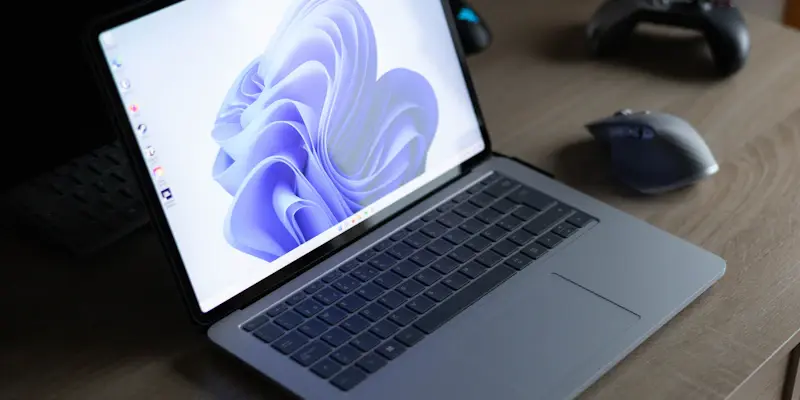As the technological landscape continues to evolve at breakneck speed, Microsoft is urging users to make a crucial transition from Windows 10 to Windows 11, especially highlighting the year 2025 as a significant milestone. Leveraging the influential CES platform, Microsoft is making a concerted effort to emphasize the end-of-support date for Windows 10, slated for October 2025, after which security updates will no longer be provided. This move aims to highlight the superior features and capabilities of Windows 11, particularly spotlighting the innovative AI-powered Copilot+ PCs. These PCs are set to deliver substantial improvements in speed, intelligence, and battery life compared to their predecessors.
The Shift to Windows 11
Emphasizing Enhanced Features
With the growing need for advanced technological solutions, Microsoft is leveraging the power of CES to communicate the advantages of upgrading to Windows 11. The company emphasizes that after October 2025, Windows 10 will no longer receive vital security updates, potentially leaving systems vulnerable to cyber threats. This push towards Windows 11 isn’t just about maintaining security, but also about introducing users to a new era of computing, characterized by enhanced performance and cutting-edge features. The new AI-powered Copilot+ PCs represent a significant leap in technology, promising up to five times the speed of a five-year-old Windows PC and a 58% increase in speed over the MacBook Air with M3. These advancements are not merely incremental but transformative, suggesting a compelling reason for users to make the switch sooner rather than later.
Microsoft’s Executive Vice President and Chief Marketing Officer, Yusuf Mehdi, has been vocal about the transformative period marked by 2024 in the realm of AI-driven practical applications on Windows PCs. He pointed out that these advancements have significantly bolstered productivity in various environments—be it work, school, or home. The new Copilot+ PCs leverage AI to deliver an intelligent, intuitive user experience that enhances productivity and efficiency. These systems are designed to adapt and learn from user interactions, making everyday tasks more seamless and efficient. The superior performance metrics, along with enhanced battery life and smarter computing capabilities, position Windows 11 PCs as the frontier of modern computing.
Security and Performance
A large part of the drive to upgrade stems from security concerns. As attacks become more sophisticated, the need for a robust security infrastructure is more critical than ever before. Windows 11 offers advanced security features designed to protect against modern threats. Coupled with the end of support for Windows 10, the security enhancements in Windows 11 make a strong case for upgrading. These include hardware-based isolation, encryption, and Microsoft’s integrated protection technologies that safeguard user data and privacy. With cyber threats continuously evolving, the absence of security updates for Windows 10 post-2025 means vulnerabilities will no longer be patched, leaving systems at significant risk. Thus, the upgrade to Windows 11 is not just advisable but necessary for maintaining security and performance.
The advantages of Windows 11 extend beyond just security. The new AI-driven Copilot+ PCs also promise improved performance, leveraging the latest hardware innovations. These PCs are engineered for superior speed, intelligence, and efficiency, contributing to an overall enhanced user experience. Mehdi’s optimism about the future of computing underscores Microsoft’s commitment to pushing the boundaries of what PCs can do. The Copilot+ PCs exemplify this, offering significant performance boosts over older models, reducing processing times, and allowing users to accomplish more in less time. Such advancements are crucial for both individual users and businesses looking to stay competitive in a fast-paced digital environment.
The Road Ahead
Adoption of Advanced Technology
Microsoft’s vision for the future is one where individuals, small businesses, and large organizations fully embrace the capabilities of Windows 11 PCs. The new operating system is designed to meet the demands of modern users, providing not only better performance but also enhanced security and AI-driven features. This upcoming transition represents a broader trend in the tech industry, where there is a constant drive to adopt newer technologies that support advanced functionalities and improved security measures. Moreover, Microsoft’s strategic push towards Windows 11 is aligned with industry-wide initiatives to future-proof technology infrastructures, ensuring they are resilient in the face of evolving challenges.
As tech giants like Microsoft continue to innovate, the adoption of new technologies like Windows 11 becomes essential for staying current with the latest advancements. The focus is on delivering an optimized, user-centric experience that addresses the needs of today’s digital age. The Copilot+ PCs, with their impressive speed and intelligence, are a testament to this commitment. They demonstrate how modern technology can be harnessed to provide users with tools that not only enhance productivity but also foster creativity and innovation. The transition to Windows 11 is more than an upgrade; it’s a step towards a more efficient, secure, and intelligent computing future.
Planning for the Future
As the pace of technological advancement accelerates, Microsoft urges users to transition from Windows 10 to Windows 11, emphasizing that 2025 marks a crucial turning point. Microsoft is leveraging the high-profile CES platform to stress the end-of-support date for Windows 10, set for October 2025. After this date, security updates and support for Windows 10 will cease. This initiative aims to underscore the enhanced features and capabilities of Windows 11, which offers superior performance. One of the standout innovations in Windows 11 is the AI-powered Copilot+ PCs. These cutting-edge devices promise significant advancements in speed, intelligence, and battery life compared to earlier models. By making this transition, users can benefit from the latest technology and improved security, ensuring a more robust computing experience. Embracing Windows 11 now will allow users to stay ahead in the ever-evolving tech landscape, offering a future-proof solution beyond 2025 when Windows 10 support officially ends.

